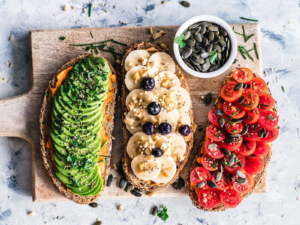The misconception that nutrition is different during the blessed month of Ramadan than it is the rest of the year is common. The person’s dietary requirements for this month are the same as for previous months, although they might be lower than they are because they involve less muscular exertion. A healthy balance is a key objective because the month of Ramadan offers many nutritional and health advantages, such as relaxing the stomach and digestive system and reducing blood pressure, obesity, diabetes, and high cholesterol. Although many meals and foods cooked during Ramadan contain high-calorie content, it is advised to eat them in moderation to prevent any potential issues. During this time, it is essential to maintain a balanced diet to ensure that you are getting all the nutrients you need.
Balancing your meals during Ramadan:
• Eat a pre-dawn meal (suhoor) that is rich in complex carbohydrates, protein, and fiber. These nutrients are slow to digest and will keep you feeling full for longer. Foods such as whole grains, fruits, vegetables, eggs, and dairy products are good options.
• Avoid foods that are high in sugar, salt, and fat. These foods are typically low in nutrients and can cause you to feel sluggish during the day. Examples include processed snacks, sugary drinks, and fried foods.
• Incorporate a variety of foods into your meals to ensure that you are getting all the nutrients you need. Include a mix of whole grains, lean protein, fruits, and vegetables in your meals.
• Drink plenty of water during non-fasting hours to keep yourself hydrated. Avoid sugary drinks and caffeine, as they can dehydrate you.
• Don’t overeat during the post-dusk meal (iftar). Overeating can cause digestive problems and make it harder to maintain a healthy weight. Instead, try to eat smaller meals throughout the night.
• Consider taking a multivitamin supplement to ensure that you are getting all the essential vitamins and minerals you need.
• Be sure to consult with your doctor or a registered dietitian if you have any specific health concerns or dietary restrictions. They can help you create a personalized meal plan that meets your individual needs.
• Enhance your consumption of fruits and veggies because they are packed with fiber, water, vitamins, and minerals.
• Strengthen your fluid intake to make up for the fluids you lose via sweating and prevent dehydration.
• Reduce your diet of sweets and switch to fruit instead.
• Avoid soft drinks and natural juices that might contribute to weight gain, indigestion, and acidity.
• Regular exercise will help you burn more calories than you consume and keep your body from storing fat. Tarawih prayers may be offered during Ramadan. Practice other sports as well at the appropriate periods.
You can also follow these simple and easy steps to ensure you’re getting all the nutrients you need:
• Start with a bowl of soup, ideally a vegetable soup, to provide your body with the vitamins, minerals, and fiber it needs to feel satisfied, promote digestion, and prevent constipation.
• Then, eat the main course, which should include all the nutrients your body needs, including protein from meat or legumes like beans, white beans, or beans. You should also include some carbohydrates like rice, bread, pasta, potatoes, fruits, and vegetables, as well as some protein and carbs from legumes like beans.
• Between Iftar and Suhoor, have a few unsalted nuts, a fruit yogurt, or other snacks.
• Suhoor is a meal that dulls extreme thirst and prevents fatigue and headaches during Ramadan. Delaying suhoor as much as you can helps you avoid feeling hungry right away. You should also aim to eat items that will keep you full for a while.
• Oats, dairy products (unsalted cheeses or labneh), fruits, and vegetables, meals high in nutritional fiber and protein, as well as dairy products in general should all be included in a balanced suhoor.
Tips for balanced Suhoor:
A balanced meal’s ingredients work together to keep your blood sugar levels as constant as possible, giving you a good amount of energy. Some things to put in your suhoor include:
• Whole grains can be found in oatmeal, brown rice, whole grain bread, whole grain cereal, and whole grain snacks.
• Fresh vegetables and fruits
• A few sources of protein are milk, yogurt, eggs, and almonds.
• Nuts and olives are good sources of healthy fats.
At suhoor, in addition to drinking water, try these simple combinations:
• Low-fat milk-based oatmeal with fruit and nuts on top.
• Serving whole-grain cereal with low-fat milk, fruit, and nuts on top.
• A boiled egg, a piece of fruit, and a piece of whole-grain toast.
• A low-fat milk glass and a whole-grain sandwich with peanut butter.
• Peanut butter on an apple or banana with a low-fat milk beverage.
• A cup of low-fat milk, a slice of whole-grain toast, and a bowl of vegetable soup
• Salad of whole-wheat couscous with canned tuna, mixed veggies, and extra virgin olive oil







